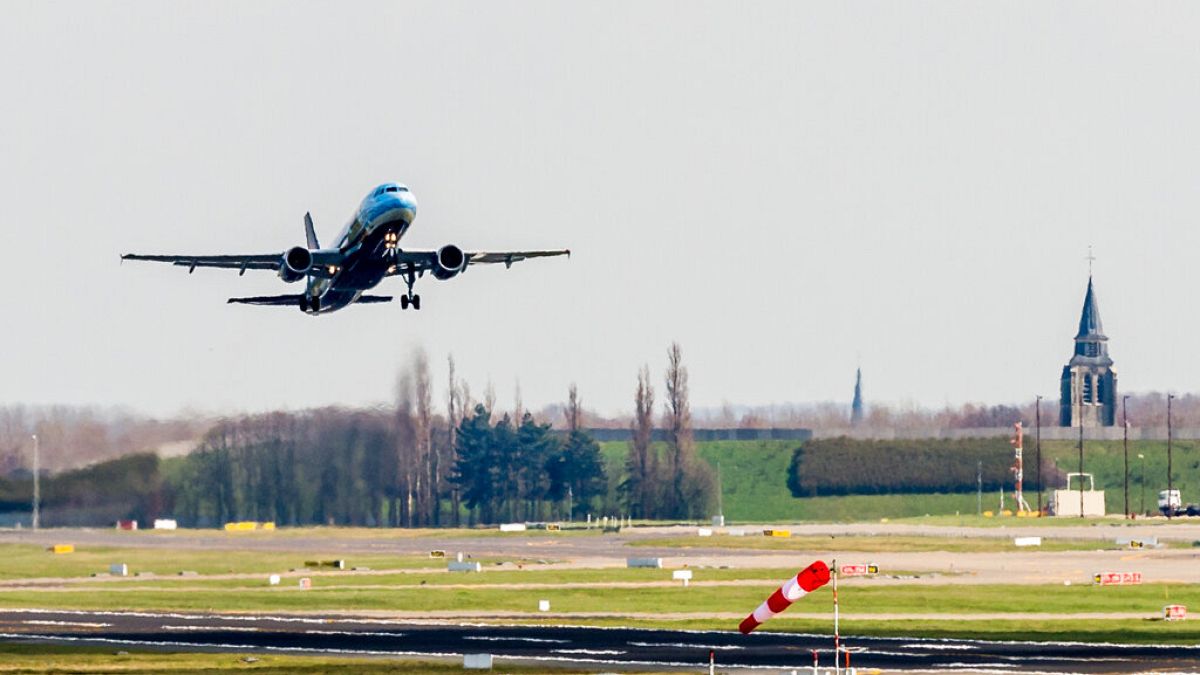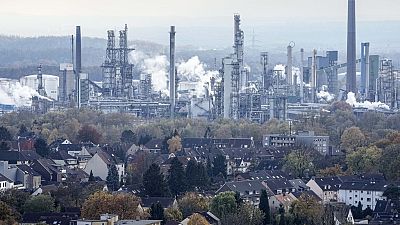In a bid to cut the climate impact of flying, the European Commission says agricultural land can be used for aviation biofuel production, providng it does not interfere with food and feed production or damage soils. But questions have been raised over whether sufficient safeguards are in place.
Biofuels made from certain fast-growing crops and plants grown on land deemed unsuitable for food production should count towards meeting targets for the uptake of sustainable aviation fuels, the EU executive will tell MEPs tomorrow (20 March) having tweaked a directive last week using delegated powers.
Under a recent review of the Renewable Energy Directive (RED), the use of food and feed crops to produce transport fuels such as ethanol and biodiesel was limited amid concern over environmental impacts and food security, with more sustainable second generation or ‘advanced’ biofuels counting towards meeting targets for use in transport.
However, the European Commission decided last week to extend the list of approved feedstocks in Annex IX of the directive, adding so-called catch and other intermediate crops grown between harvest and the next planting, as well as damaged crops – but only to make fuel for aircraft, not road transport.
The EU executive stipulates that using intermediate crops as a feedstock is only permitted “where due to a short vegetation period the production of food and feed crops is limited to one harvest and provided their use does not trigger demand for additional land, and provided the soil organic matter content is maintained”.
But environmental campaigners are concerned that this proviso is not strong enough to prevent the unsustainable use of food and feed crops, and viable agricultural land, for fuel production. Barbara Smailagić, a fuels policy specialist at NGO umbrella group Transport & Environment, said the restriction was unworkable without proper guidelines or definitions.
“The feedstocks that were added last minute to part A of Annex IX such as intermediate crops and crops grown on severely degraded land come with a high risk of fraud that was identified by the commission itself in their report accompanying the revision of the Annex IX feedstocks,” Smailagić told Euronews.
She sensed the hand of industry lobbyists in influencing what she claimed a comparison with earlier drafts of the new legislation suggests must have been an eleventh-hour decision to add farmland to the list of preferred sources for advanced biofuel production, which is intended to encourage investment in more sustainable second-generation biofuels.
“There has clearly been a push for a certain type of feedstock,” Smailagić said, citing a joint letter to policy makers dating from May 2023 in which oil firms and airlines argued that intermediate crops do not compete for land with food and feed, and that allowing their use would further the EU’s net-zero ambitions.
Some in the biofuels industry were also critical of the commission’s decision, but because the promotion of crop-based biofuels was limited to the aviation sector.
Angel Alvarez Alberdi, who heads the European Waste-based and Advanced Biofuels Association, welcomed the extension of the list of approved feedstocks, which also added cyanobacteria and by-products from wood pulping and distilleries. But he questioned the special status accorded to airlines.
“The last-minute addition of intermediate/cover crops only for aviation…is very surprising and has strongly unsettled many of our members who see a clear discrimination against other transport sectors,” said Alberdi, whose association was among the signatories of the May letter.
EU policy is driving up demand for renewable fuels, with the RED stipulating that advanced biofuels must cover at least 3.5% of the energy used for transport by 2030. A separate law demands an increasing share of sustainable aviation fuels for European flights, rising gradually from currently negligible levels to a fifth in 2035 and almost two-thirds by 2050.
The EU Council and Parliament have two months to scrutinise the delegated act, which they can block, but not amend. Commission officials are scheduled to explain the reasoning behind it to MEPs on the parliamentary industry and energy committee tomorrow.
Airlines are making tentative steps towards incorporating green fuels into their business models, with Ryanair announcing last week an agreement to purchase this year a further 500 tonnes of sustainable aviation fuel derived from used cooking oil from Austrian oil firm OMV, having undertaken to buy 160,000 tonnes up to 2030. The use of that feedstock is capped, however, along with conventional food crops, due to concerns over availability and the risk of fraud.
The European Court of Auditors, the EU’s budget watchdog, warned in December that the bloc’s biofuels policy “lacks a long-term perspective” on meeting ambitious decarbonisation goals for the aviation and maritime sectors, as well as transport more broadly.



